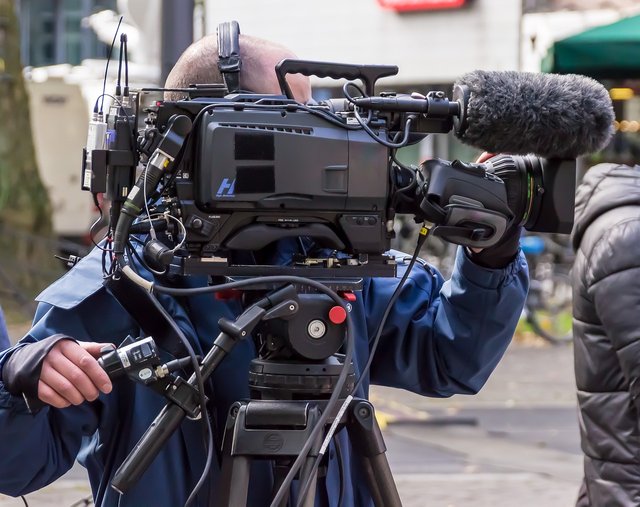Contest !|! Media Freedom in Your country!!by @mumer123
Warm Welcome to all members How are you all I am Umer I hope you are doing well i am also good with the blessing of Allah almighty..
Today I'm here to participate in this amazing contest which is organized by @artist1111 in the @SteemforPakistan community.
.jpg)
1.Government regulations on media content: Are there restrictions on certain topics?
Yes, government regulations on media content can vary significantly from country to country. Many countries have laws and regulations in place that impose restrictions on certain topics in the media. These restrictions are often implemented for various reasons, such as national security, public safety, cultural sensitivities, or to prevent the dissemination of harmful or inappropriate content.
Some common examples of topics that may be subject to restrictions include:
1. National security and terrorism:
Governments often have regulations in place to prevent the publication or broadcast of information that could potentially compromise national security or aid terrorist activities.
2. Hate speech and incitement to violence:
Many countries have laws prohibiting the dissemination of hate speech or content that promotes violence or incites discrimination based on factors such as race, religion, ethnicity, or gender.
3. Obscenity and pornography:
Governments often have regulations on the distribution and accessibility of explicit sexual content to protect public decency and prevent the exploitation of minors.

https://pixabay.com/es/photos/c%c3%a1mara-c%c3%a1mara-filmogr%c3%a1fica-pel%c3%adcula-973107/
4. Defamation and libel:
Laws regarding defamation and libel vary, but in general, they aim to protect individuals or organizations from false or damaging statements published or broadcast by the media.
5. Political propaganda:
Some countries have regulations on political content to ensure fairness and prevent the spread of false information or propaganda during elections or political campaigns.
2.Media bias and political influence: Do you think media outlets lean towards specific ideologies or not?
Media outlets can indeed lean towards specific ideologies or have certain biases in their reporting. Media bias can manifest in various forms, including the selection and presentation of news stories, the emphasis given to certain perspectives, the use of language and framing, and the inclusion or exclusion of particular voices or opinions.

https://pixabay.com/es/photos/televisor-android-tv-televisi%c3%b3n-red-627876/
The existence of media bias is influenced by several factors:
1. Ownership and funding:
Media outlets may be owned by individuals, corporations, or organizations with particular political or ideological leanings.
2. Journalists and editors:
The personal beliefs and biases of journalists and editors can influence the way news is reported, framed, and presented.
3. Audience demand and market competition:Media outlets may cater to the preferences and expectations of their target audiences to maintain or increase viewership, readership, or online traffic.
4. Political and societal context:
Media bias can be influenced by the broader political and societal climate.
3.Media ownership and concentration: Who owns major media outlets (Channels)?
The ownership of major media outlets varies from country to country. Here are some examples of major media outlets and their respective owners as of my knowledge cutoff in September 2021:
1. United States:
- The Walt Disney Company owns ABC News and ESPN.
- Comcast Corporation owns NBC News and MSNBC.

From my youtube..
2. United Kingdom:
- BBC (British Broadcasting Corporation) is publicly funded and governed by a Royal Charter.
- Sky News is owned by Comcast Corporation.
- The Times and The Sunday Times are owned by News UK
- The Guardian is owned by The Scott Trust Limited.
3. Australia: - News Corp Australia, owned by Rupert Murdoch, has significant media holdings, including newspapers like The Australian and The Daily Telegraph.
The Sydney Morning Herald.
4. Canada:
- Bell Media, a subsidiary of BCE Inc., owns CTV News.
- Rogers Communications owns CityNews.
- Canadian Broadcasting Corporation (CBC) is publicly funded and operates independently.
It's important to note that media ownership landscapes can change over time due to mergers, acquisitions, and divestitures. Additionally, the list provided here is not exhaustive and only includes a few examples from different countries.
Now I would like to invite @wilmer1988 , @aaliarubab , @subhooi , @nadiaturrina , @steemdoctor1 , @faran-nabeel, @pelon53 and @malikusman1 to participating on contest.
Thank You So Much For Reading My Blog
Regards,
Muhammad Umer
Thank you, friend!


I'm @steem.history, who is steem witness.
Thank you for witnessvoting for me.
please click it!
(Go to https://steemit.com/~witnesses and type fbslo at the bottom of the page)
The weight is reduced because of the lack of Voting Power. If you vote for me as a witness, you can get my little vote.